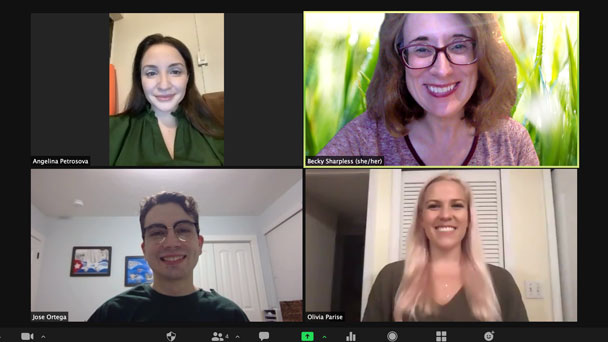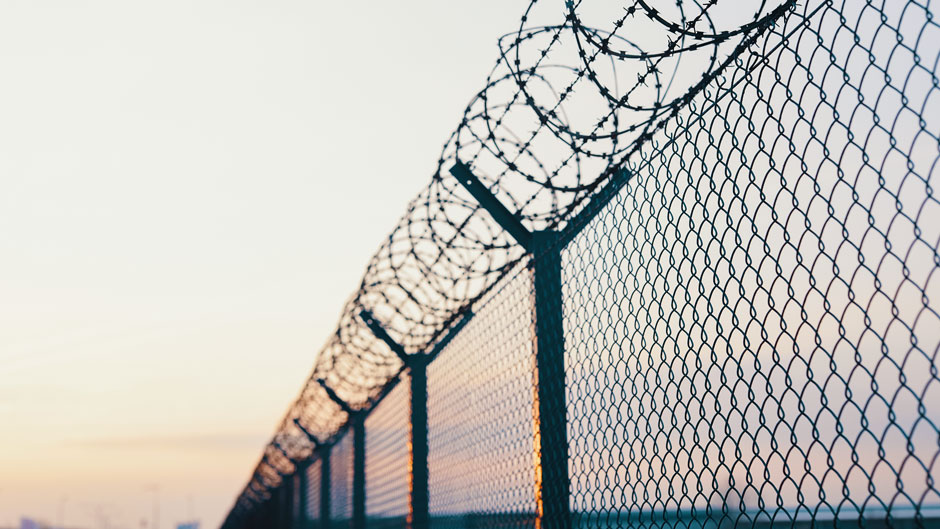Olivia Parise didn’t hesitate when Rebecca Sharpless, professor at the University of Miami School of Law and director of the Immigration Clinic, circulated an invitation last spring to student lawyers in the clinic to join a legal effort to help protect immigrants held in South Florida detention centers who—without soap, gloves, and masks and shuttered in crowded conditions as they suffered endless delays in their cases—were especially susceptible to the spreading coronavirus.
A second-year law school student at the time, Parise was already well attuned to the plight that immigrants face navigating the complicated and often capricious United States immigration system. In Connecticut, where she lived with her stepmother who had emigrated from Mexico City, Parise began volunteering at a family immigration clinic while in high school. Then, as an undergraduate in Philadelphia, her knowledge of Spanish proved valuable as she interned translating for attorneys and their clients in asylum cases.
“Those stories really touched my heart, and I decided that I needed to do something more than just interpret—and that led me to want to go to law school,” she said.
Sharpless’ reputation and expertise, as evidenced through her voluminous writings on immigration, were the major factor that attracted Parise to the School of Law. So, when the director’s invitation came to generate the lawsuit, she responded.
“As soon as COVID-19 started, we realized we had to do something because the conditions in detention are already terrible. And then when you introduce a global pandemic, we knew it was going to be an absolute mess,” Parise recalled.
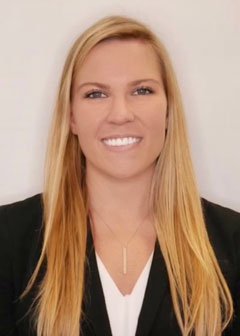
After getting the call, Parise joined the team of clinic students who worked nearly around the clock for the next week, communicating with legal partners, contacting detainees, plugging in facts, and honing legal arguments to file a case that would potentially save hundreds of lives—and in a federal circuit that has been anything but favorable to cases regarding detainees.
“This was all at the end of a long semester, and it was a heavy lift,” Sharpless recalled. “A normal timeline for a class action suit would have been weeks or longer.”
Filed on April 13, 2020, the lawsuit accused the U.S. Immigration and Custom Enforcement (ICE) of ignoring COVID-19 guidelines at three detention centers—Krome Processing Center in Miami-Dade, Broward Transitional Center in Pompano Beach, and the Glades County Detention Center in Moore Haven—and sought the release of the detained men and women.
In addition to Parise, School of Law students Katarina Gomez, Meredith Hoffman, Maria Llorens, Jacob Morse, and Maria Piselli all helped to prepare the suit. The Southern Poverty Law Center, Americans for Immigrant Justice, the Rapid Defense Network in New York, the Legal Aid Service of Broward County, and Prader Urizar LPPC in Miami are co-counsels. King & Spalding LLP later stepped in to take the lead as the case proceeded to numerous hearings and discovery.
The case was passed to Magistrate Judge Jonathan Goodman who returned a 69-page order 10 days later that called for the three centers to substantially reduce the population. In a subsequent order, on May 1, U.S. District Judge Marcia G. Cooke issued a terse order accusing U.S. authorities of acting with “deliberate indifference” and ordered ICE to further reduce the detainee populations.
To date, all but three of the plaintiffs named in the case have been released, according to Sharpless. The court ordered the government to submit weekly reports regarding its actions. COVID-19 cases can now be tracked via a dashboard.
Though pleased by the progress, Sharpless remained concerned.
“The lawsuit forced ICE to take action that it otherwise would not have,” she said, “yet it became apparent pretty quickly that ICE was transferring people out of the three centers under scrutiny to make its numbers look better.” Troubling conditions persist at other detention centers, and the current ruling to reduce center capacity to 75 percent is insufficient to allow for physical distancing, she said.
“And we just learned that ICE has no plans to vaccinate the detained men and women,” she pointed out, “even though CDC guidelines recommend that vaccinations be made available on a priority basis to everyone inside detention centers, including staff and detained persons. These detention centers have large populations. With people moving in and out, it’s a recipe for a public health disaster.”
Parise continues this semester as a student fellow working to identify more plaintiffs to add to the case and mentoring new students in the clinic such as Angelina Petrosova and Jose Ortega.
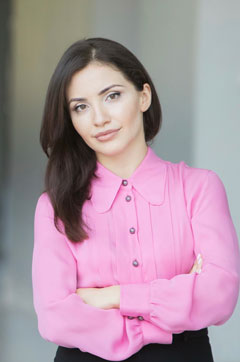
Petrosova, a first-year law student originally from Russia, began at the clinic just weeks ago and has been busy reviewing the sophisticated litigation. She brings a wealth of experience, however, to the task.
Before coming to the U.S. in 2015, Petrosova studied at Moscow State Academy of Law and worked in a family law clinic there helping families. While seeking to resolve her own U.S. naturalization process, she befriended—and so impressed—the attorney handling her case that she was offered a job and has worked for two years as a paralegal. When she completes her J.D. degree, she expects to join the firm as a partner and practice immigration law in South Florida.
“It definitely takes a lot of time to just review the case,” she said. “You don’t want to miss anything important, and it’s very engaging because you are helping real people in need,” she added.
“We’re just getting used to what the volume of work in the clinic is like,” she continued. “”No matter how hard it is, we will do our best and try to make the best case we can for them.”
Petrosova is confident that, in contrast to the past four years, the new administration will make it easier to present legitimate cases for asylum and other immigrant-related proceedings.
“If a person has good moral character and is willing to work, get an education, and lead a good life here in the United States, they should have a chance,” she said.
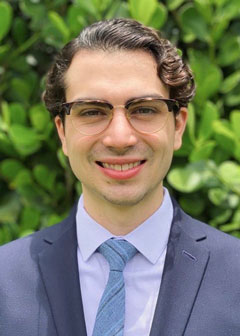
Jose Ortega, a second-year law student, signed up for the clinic after taking the elective course on immigration law with Sharpless last year. He and Petrosova work as partners in the clinic.
He learned the necessary terms and theories in the course, yet a case like this presents a steep learning curve.
“I felt prepared in that I learned the terms and theories of immigration law and gained familiarity with the many administrative offices, but I’ve definitely been learning on my feet,” Ortega said.
A Cuban American from South Florida who hails from a family of immigrants, Ortega studied engineering before shifting his career direction to pursue a law degree.
“There’s something very different from growing up and hearing about the immigration journey, or even having friends who are immigrants, and then to be working on cases like this and hearing from clients about their experiences and the impact that the case has on all aspects of their lives,” he said.
“One of the things about the clinic is that you’re tackling these cases, but you’re able to collaborate with another student who can bring a different perspective or skills that you don’t have or ask questions that don’t occur to you,” Ortega noted. “That’s really important.”
Parise echoed the rewards that come with collaborative work on a meaningful project.
“I love working with other people and to be able to be a law clinic fellow and share some of my experience and tips on how to navigate the clinic and the immigration legal field, including connections with other attorneys in Miami,” she said. “It’s been really rewarding just to know that I’m part of a project that’s doing such great and necessary work.”
